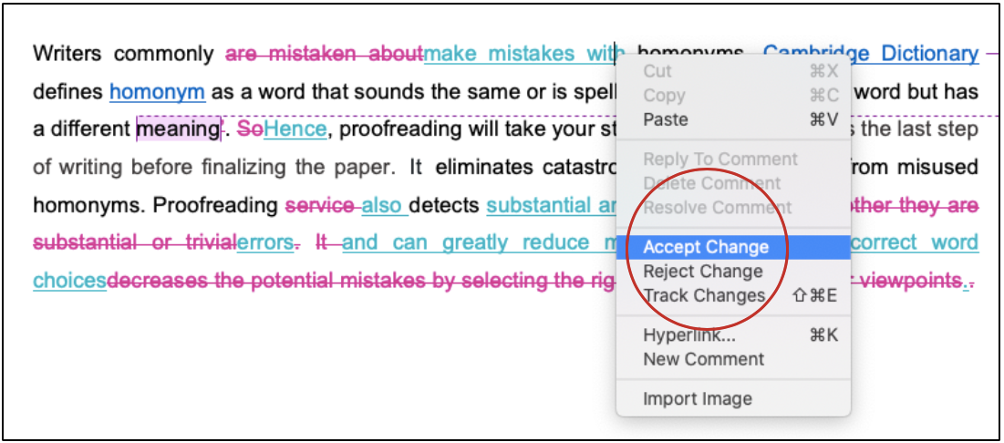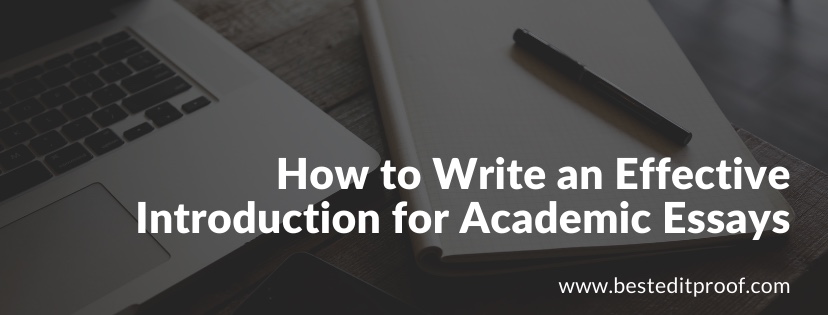An abstract, is an important part of an academic work and a synopsis of a longer study such as a dissertation or thesis. Its most critical aspect is precise reporting of the objectives and outcomes of your research. Thus, the readers can learn about your work by perusing your abstract.

An abstract, a synopsis of a longer study (such as a dissertation or thesis), is required. Its most critical aspect is precise reporting of the objectives and outcomes of your research. Thus, the readers can learn about your work by perusing your abstract. Even though you may have slightly varied structures depending on your discipline, your abstract should cover the purpose of your study, the methods employed, and the conclusions drawn. An ideal abstract should contain Introduction, Methods, Results, and Discussion.
Abstracts can comprise words in the range of 100–300. Primarily, a strict word limit is imposed. Hence, you must check to ensure you do not exceed the relevant requirements.
Its usual place in a dissertation or thesis is after the title page and acknowledgments just before the table of contents.
You must write an abstract on the following occasions: when finishing your thesis and dissertation, sending a research paper to a meeting or academic journal, penning a book proposal, and applying for research grants.
You must write your abstract last as it epitomizes the study you have already completed. Therefore, your abstract should be self-explanatory and reflect the structure of your research.
Editing and proofreading your abstract is critical. A professional editing and proofreading service with trained and experienced experts with Ph.D. in their fields will edit your thesis or dissertation abstract without prejudice. Their suggestions will make the abstract more legible and practical.
Let us have a look at the parts you should discuss in your thesis or dissertation abstract.
It would be best if you began by defining your research objective. You must address the issues such as what kind of down-to-earth and practical problems your research explores and what was your research question? A short social or academic introduction of your subject is fine but do not give unnecessary details. Should you have to use specialized terms with varied meanings, you had better define them concisely. After specifying the problem, disclose your research objective in precise words. I would recommend that you use words such as “test,” “analyze,” “explore,” “examine,” “assess,” or “evaluate” to define what you embarked on doing.
You must use present or past simple in this part. Be careful! You cannot use future tense because your research is already complete.
You must indicate the research methods utilized to address your research question. This part should concisely cover your research in a sentence or two. Usually, researchers prefer past simple tense because methods refer to completed acts. Try to avoid validity or obstacle assessment as you should give readers rapid insight into your research and methodologies.
You must epitomize your primary research results in this part. It must be in the present or simple past tense. Please try to avoid the present perfect tense as this tense relates to the present and past simultaneously. You may be unable to cover all your results here due to word limitations. Therefore, try to be concise and present what is most significant.
Ultimately, it would help if you discussed your primary findings. This part should be in the present simple tense. The readers learn your answer to the research problem or question you have posted in this part. They should precisely understand the essential points that your study has discussed or proved. They must be in this part if you feel that crucial limitations to your research, such as limited sample size or not full-fledged methods, exist. Thus, the reader can precisely assess the credibility and universality of your study. Your objective may include solving a down-to-earth problem. Then, your discussion should cover recommendations for implementation. If you find it helpful, brief suggestions for further research will be appropriate.
This article summarizes what your thesis or dissertation abstract should and should not cover. Keep in mind that editing and proofreading services can do fine-tuning your abstract.
Editing and proofreading your dissertation is exceedingly crucial. A professional editing and proofreading service has trained, experienced experts with PhD in their fields and will edit your work without prejudice. Their suggestions will make the dissertation or thesis more legible and practical. Another set of eyes can check your dissertation much better than you as they can readily find mistakes or areas that need fine-tuning. In academic writing, editing and proofreading ensure the credibility of the content. Many mistakes concerning grammar, punctuation, syntax, sentence construction and other minor errors are amended. An expert who will amend such mistakes will save time and ensure consistency and error-free writing for your thesis or dissertation.
How to Structure a Dissertation: A Brief Guide
Dissertation Submission Checklist: 5 Important Tips
How to Layout and Format a Dissertation: 10 Tips
How to Choose a Dissertation Editor in 3 Steps
A Step-by-Step Guide on Writing and Structuring Your Dissertation
Best Edit & Proof expert editors and proofreaders focus on offering papers with proper tone, content, and style of academic writing, and also provide an upscale editing and proofreading service for you. If you consider our pieces of advice, you will witness a notable increase in the chance for your research manuscript to be accepted by the publishers. We work together as an academic writing style guide by bestowing subject-area editing and proofreading around several categorized writing styles. With the group of our expert editors, you will always find us all set to help you identify the tone and style that your manuscript needs to get a nod from the publishers.

You can also avail of our assistance if you are looking for editors who can format your manuscript, or just check on the particular styles for the formatting task as per the guidelines provided to you, e.g., APA, MLA, or Chicago/Turabian styles. Best Edit & Proof editors and proofreaders provide all sorts of academic writing help, including editing and proofreading services, using our user-friendly website, and a streamlined ordering process.
Visit our order page if you want our subject-area editors or language experts to work on your manuscript to improve its tone and style and give it a perfect academic tone and style through proper editing and proofreading. The process of submitting a paper is very easy and quick. Click here to find out how it works.
Our pricing is based on the type of service you avail of here, be it editing or proofreading. We charge on the basis of the word count of your manuscript that you submit for editing and proofreading and the turnaround time it takes to get it done. If you want to get an instant price quote for your project, copy and paste your document or enter your word count into our pricing calculator.
Contact us to get support with academic editing and proofreading. We have a 24/7 active live chat mode to offer you direct support along with qualified editors to refine and furbish your manuscript.
Follow us on Twitter, LinkedIn, Facebook, Instagram, and Medium.
For more posts, click here.
This article explains how to write an impeccable for your dissertation or thesis. To give you an opportunity to practice proofreading, we have left a few spelling, punctuation, or grammatical errors in the text. See if you can spot them! If you spot the errors correctly, you will be entitled to a 10% discount.
How to Determine Variability in a Dataset
14.10.2023
How to Determine Central Tendency
19.02.2023
How to Specify Study Variables in Research Papers?
14.01.2023
Population vs Sample | Sampling Methods for a Dissertation
14.01.2023
7 Issues to Avoid That may Dent the Quality of Thesis Writing
18.12.2022
How to Ensure the Quality of Academic Writing in a Thesis and Dissertation?
04.12.2022
How to Define Population and Sample in a Dissertation?
03.12.2022

Writing an impactful introduction is more than just following the rules. If you search on the Internet, you may find stereotypical rules and regulations. However, it is important to understand that the author’s creative sense and ability to comprehend the topic helps in executing an effective introduction. This article discusses the major elements of writing an introduction and how you can write an impactful introduction.
Continue Reading
Academic writing is the type of writing style that requires a lot of attention to details, rules, and regulations. Mainly used for, as you might have guessed, academic purposes, it is one of the most common writing styles for professional works. However, as regulated and strict it is, it is also easier to make mistakes here. One such very common mistake that happens all the time for several researchers is sentence structuring. Sentence structuring has always been a little tricky, academic writing or not. That is why a great emphasis is made on them during the editing and proofreading phases. This article discusses the most common sentence structuring mistakes and how you can avoid them.
Continue Reading
This reference guide explains how to format your academic documents in Microsoft Word 2022, giving you the fundamental rules for formatting your academic papers as described in most guidelines, such as MLA and APA styles. The rules discussed in this guide apply to most of the academic papers you will submit as college assignments or articles for journals.
Continue Reading
If you are just starting with academic writing, you may feel overwhelmed by the pressure that academic writing usually imposes. However, as demanding as it may seem, you can easily master academic writing if you know the right rules to follow. This article particularly reaches out to beginners in academic writing to help you master this form of writing. Here, we will go through the basic language rules that apply to all kinds of academic writing (generally) and will help you master it in no time.
Continue Reading
Track changes function in Microsoft Word 2021 for macOS is a very handy tool to track your revisions, corrections, changes, edits, and even suggestions and comments while you’re reviewing a document. When an editor or proofreader wants to return a revised document to a client with his/her all revisions visibly marked, and so clients can accept or reject, or the suggested changes appear in the margins of the returned document, he/she needs Track Changes function of Microsoft Word.
Continue Reading
Writing a research paper involves scrutinizing a plethora of research material to bring forth plausible conclusions. However, no matter the degree of impeccability and thoroughness of the research, successfully transmuting it into words takes a grave amount of practice and endurance. Thus, it is not uncommon to see amateur and even veteran scholarly writers commit research writing mistakes in their papers now and then. Following the narrative, this article will describe 5 research writing mistakes that frequently blemish the works of academic writers. It will also shed some much-needed light on the tips to amend and avoid these mistakes.
Continue Reading
It is not uncommon for individuals, academic and nonacademic to use “thesis” and “research paper” interchangeably. However, while the thesis vs. research paper puzzle might seem amusing to some, for graduate, postgraduate and doctoral students, knowing the differences between the two is crucial. Not only does a clear demarcation of the two terms help you acquire a precise approach toward writing each of them, but it also helps you keep in mind the subtle nuances that go into creating the two documents. This brief guide discusses the main difference between a thesis and a research paper.
Continue Reading